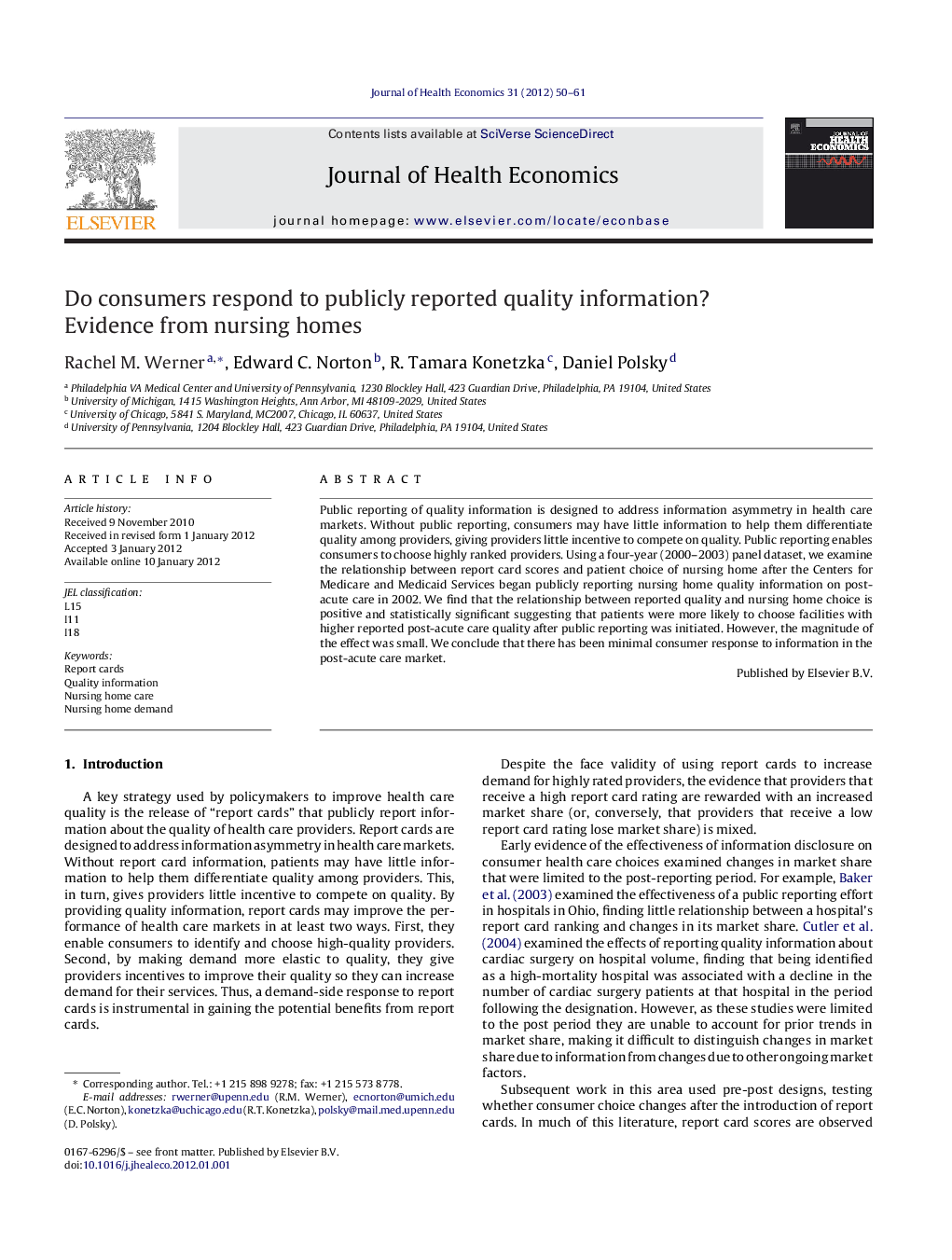| Article ID | Journal | Published Year | Pages | File Type |
|---|---|---|---|---|
| 961502 | Journal of Health Economics | 2012 | 12 Pages |
Abstract
Public reporting of quality information is designed to address information asymmetry in health care markets. Without public reporting, consumers may have little information to help them differentiate quality among providers, giving providers little incentive to compete on quality. Public reporting enables consumers to choose highly ranked providers. Using a four-year (2000-2003) panel dataset, we examine the relationship between report card scores and patient choice of nursing home after the Centers for Medicare and Medicaid Services began publicly reporting nursing home quality information on post-acute care in 2002. We find that the relationship between reported quality and nursing home choice is positive and statistically significant suggesting that patients were more likely to choose facilities with higher reported post-acute care quality after public reporting was initiated. However, the magnitude of the effect was small. We conclude that there has been minimal consumer response to information in the post-acute care market.
Related Topics
Health Sciences
Medicine and Dentistry
Public Health and Health Policy
Authors
Rachel M. Werner, Edward C. Norton, R. Tamara Konetzka, Daniel Polsky,
